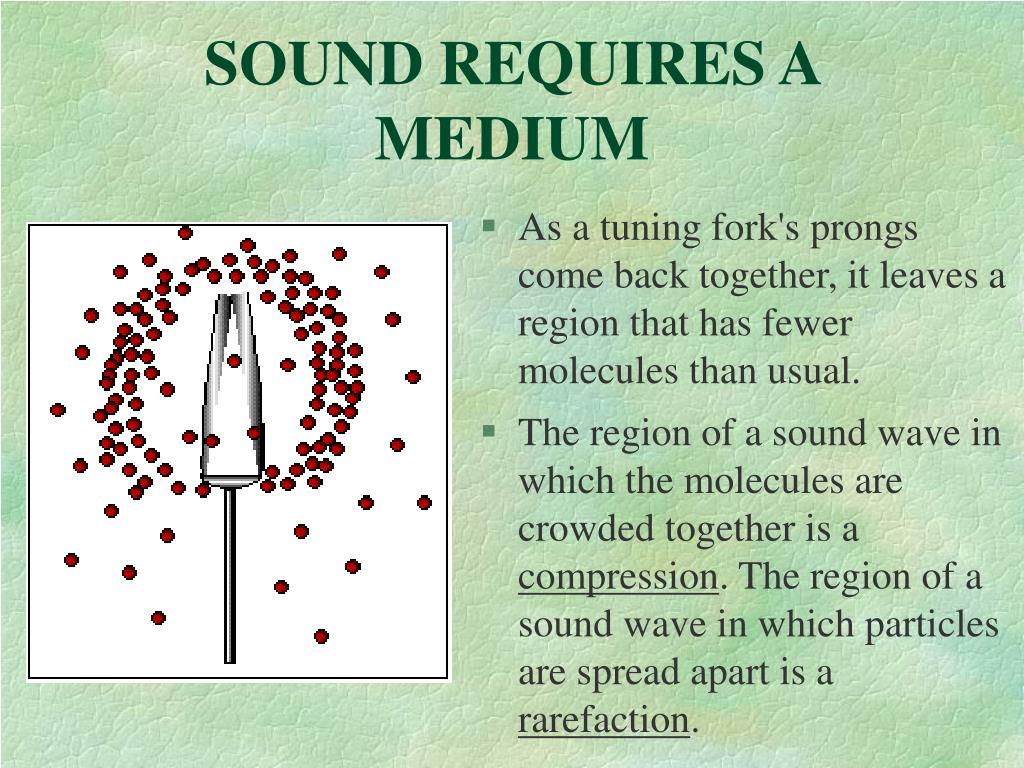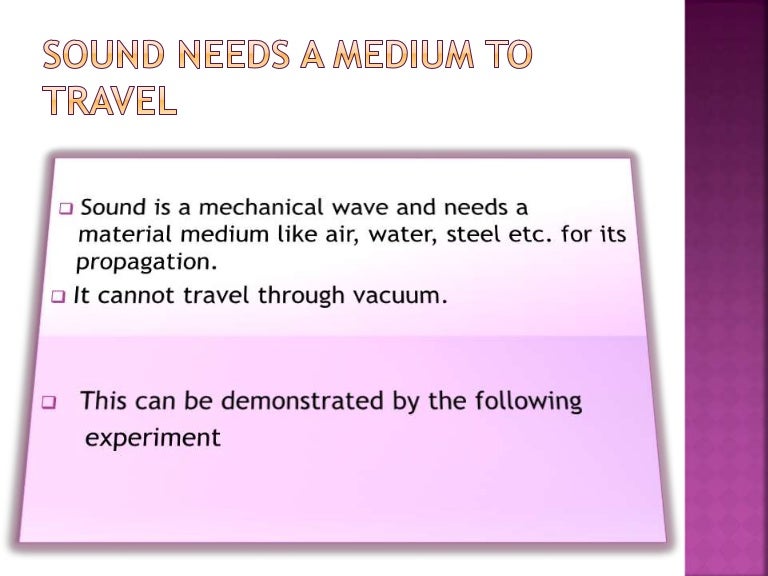The velocity relation looks like: vsound in fluid = B ρ−−√ (2.1.1) (2.1.1) v s o u n d i n f l u i d = B ρ. Sound will also travel through a solid, but in that case the interactions of the particles are different than in a fluid, and the constant that takes the place of tension is a different one: Young's modulus. But the formula.. Sound medium is a substance in which sound waves travel. Air, for example, is a sound medium. Sound quality, also called timbre, is a characteristic of musical sounds. Sound quality distinguishes between notes of the same frequency and intensity that are produced by different musical instruments.. An important contribution to the.

Sound.Codes

Sound Music Library

Bell Jar Experiment Class 9 Science NCERT Q3 Teachoo

Sound Effects

PPT SCIENCE OF SOUND PowerPoint Presentation, free download ID5670231

Sound Needs a Medium Sound Physics Class 9 YouTube

MediuM Band

연출 효과음 Various sound effects 필요한 효과음, Necessary sound effects YouTube

explain with a neat diagram to prove the following sound needs material

SOUND EDGE

Explain an activity with labeled diagram that sound needs material

Sound needs a medium to travel science grade 9 chapter sound

Sound needs a medium for propagation // Class 8 Physics // Chapter

Sound Device

Why is sound insulation necessary? YOSHINO GYPSUM

Necessary Sounds II in Sound Effects UE Marketplace

Culturally Sound Options Intercontinental Cry

Sound Art in the Age of Necessary Listening by T\LT WEST Medium

Sound Studios

Sense Organ Eye Lessons Blendspace
Sound needs a medium to travel. Sound can travel fastest in solids. So, we can say that solid is the best medium of sound. Sound waves are longitudinal waves. Waves in which particles of the medium move in a direction parallel or antiparallel to the direction of energy transport are called longitudinal waves.. Speed of Sound. Lastly, let's talk about the speed of sound, which varies depending on the medium through which it travels. In dry air at room temperature, the speed of sound is approximately 343\text{ meters per second}.In water, it's faster—about 1{,}500\text{ meters per second}.The speed of sound is affected by factors like temperature, pressure, and the properties of the medium it.